“Memory is deceptive because it is colored by today’s events.”
– Albert Einstein
Memory is indeed deceptive. A memory is influenced, not only by events that occurred since its creation, but also by the state that one is in when creating the original memory. Because this story is of my recovery following a severe traumatic brain injury, the reality is that my brain was freshly damaged during the time that these memories were being created.
Eric Kandel, one of the three recipients of the 2000 Nobel Prize in Physiology or Medicine for his research on the physiological basis of memory storage by neurons, has said that “life is all memory, except for the one present moment that goes by you so quickly you hardly catch it going.” My ability to “catch it going” was indeed limited on account of my freshly damaged brain. Additionally, I have a small amount of memory loss before my injury (retrograde amnesia) and over a month of my life after the event has been completely erased (anterograde amnesia).
A portion of what has been constructed in this series of posts is my attempt to piece together and to document my recovery. I have done so from my own foggy memory in conjunction with hundreds of interviews with friends, family, doctors, nurses, and therapists, as well as information collected from medical records, emails, text messages, and notes.
My memories vaguely begin after waking from my second coma. I say vaguely, not because the time is approximate, but because my memories of this time are foggy at best. And that’s how I experienced them. I was in a dense fog. I was in such a dense fog that I was not even able to see that I was in a fog. How can one tell that it is raining when they are underwater?
In addition to my memories being foggy, they are also few and far between… Literally. I have only retained a few hazy memories of confusion that are separated by gaps of complete nothingness, most of which span for entire days. I only seem to recollect snippets of scenes separated by nothingness, as if I have a few scattered puzzle pieces of memories, some that fit together, but many pieces in between are missing. My actual experience may have been different than the stitch and patchwork that I have done to create a cohesive timeline.
I think that the best way I am able to portray my experience is to invite you on a walk down this memory lane, with all of its potholes and roadblocks. Because there are literally thousands of studies that show the unreliability of eyewitness accounts, I fully recognize that my own memory is often not the most reliable source of information concerning the actual sequence of events that took place. My memory is, however and quite obviously, a very reliable testimony of my memory, my research, and my heart.
The loved one of almost every client who I work with is experiencing some form of memory loss. One tool that I have found to be useful to help restore memories and/or enhance the ability of their loved one’s to make new memories is to “find a way in,” meaning that we troubleshoot to find what is going to help a memory to “stick.” Visualization pathways reach nearly every area of the brain which makes them very powerful for creating new memories. Combined with emotional stimuli, often brought by familiar music, memory restoration is often even more powerful.
Back to the story…. 9 years ago, on Friday, June 10th, 2011 I woke from my second coma. This is how I have come to remember my first memory after sustaining a severe traumatic brain injury:
________________
“Cavin… It’s mom. Can you hear me?” A voice gently asked.
Through complete darkness, my eyes slightly peeked to reveal what looked like a hospital, yet the full spectrum fluorescent bulbs above emitted an unexpected yellow hue that tinted the hazy room that I was in. I did not know where I was, why I was there, or what had happened. I remember trying to read the clock on the wall to gather more information about this reality, but my attention was quickly diverted.
I did not really care what time it was. What difference would it make? Time was not tangible to me. I had no memory of a past and no concept of the future. I only had the confusion of the present moment, and the feeling was not dissimilar to times when I had awoken from all night drinking benders…
and this was by far the worst hangover I had ever experienced.
After all, I would later find out that, I had been given sedatives, anesthesia, opiates, and steroids for the past week while I laid in an induced coma receiving no real nutrition.
We all have an overpowering instinctual type of memory that functions to make pre judgements based on previous experience and emotional reactions. This implicit memory seemed to be functioning in overdrive, for it was a large part of the small memory that my mind had left to rely on. As my eyes and brain struggled to make sense of my surroundings, my visual field slightly expanded to a narrow tunnel. In the center of this yellow hazed scope stood a man and a woman, each wearing blue rubber gloves, and yellow thin fabric “isolation gowns” that I later found out were required to prevent visitors from spreading MRSA from one patient to another.
While I did not immediately know who these people were in front of me, my feeling of them was of warmth. I instinctually recognized both of them as people that I had known and that I cared about, but I was not aware of our history as family. In addition to this implicit memory, I also seemed to have an intact semantic memory, or memories of facts and vocabulary. The woman had told me that she was my mother. I knew that the word mother referred to the woman who gave birth to me, and, because it was a fact about my mom, I knew that she lived in Texas. The woman’s claim as being my mother matched with my emotional feeling of warmth, so I believed her. Without question, I jumped to the conclusion that I must be in Texas.
My confusion, uncertainty, and doubt solidified that my instincts were the best option of my limited mental resources to put my faith in. If my implicit, or emotional, memory harmonized with what I was told and what my memory of “facts” recalled, I would believe something as “truth.” I found relief with this strategy of how I could determine reality despite my confusion!
Even though I saw four eyes on each of their faces, I could tell that it was my perception that was off. I brought my right hand to my face to rub the weeks of sleep from my eyes in hopes of resetting my skewed vision. It did not work, but I ignored this distortion of my perception. There were more pressing questions that I needed to answer.
“Hey, Cavin. You’re OK.” The man said lovingly.
My eyes closed tightly with each blink as if I was trying to get something out of them.
“What? Where… am… I?”
Their eyes fixated wondrously on me.
“You were put into an induced coma because you developed breathing problems.” the woman explained, expecting me to have some memory of the past few weeks. As far as I knew, she was telling me that I was just walking down the street one day and then, all of the sudden, “they” put me into an induced coma.
“Your windpipe had shrunk down to the size of a drinking straw, and you could not breathe.”
I looked at them both with a squinted and perplexed expression. “I… couldn’t…. breathe?” I slowly questioned.
“They were going to have to give you a tracheostomy, where you would have to breathe through a tube in your neck, but they gave you a course of steroids and did another throat scope, and all they saw was a raw and ratty throat.”
“Steroids… good?” The words dribbled off my chapped lips in confusion.
“Steroids are usually bad,” I remember the man saying, “but they may have saved your life.”
This moment became a baseline of my recollection… the starting place where my mind began recording declarative memories – memories with details that one can recall.
I had already decided that I must be in Texas, and, while I recognized that the man was caring, I assumed that he was my mother’s fiancé. “Where’s… my… father?!” I demanded of my mom, not realizing that the man before me was him.
I kept my eyes on my mother as she turned her head towards me sharply with her eyebrows angled inward and her mouth slightly ajar. “He’s right here!” She said wearing a familiar expression of alarm and concern that I felt shamed by.
My gaze shot over to the man who looked shocked and heartbroken. I could see the pain behind his eyes as he swallowed the sting of his son’s lack of recognition. A lack of recognition, not only of what he had gone through to be by my side, but of his entire identity as the man who raised me. I could see his eyes cover the wound that my spotted memory had caused. I felt dumb, confused, and like I was a disappointment. The reality I had awoken to was dark and hazy like a dream… a nightmare.
_________________
My mother had become so used to putting out fires that she expected another danger to reveal itself at any moment. While my mother scanned expectantly for dangers, my eyes jumped from place to place, wondrously trying to find more clues about my surroundings to make sense of this white walled Oz that I had suddenly been transported to.
While new memories must have been recorded during this time period, they are few and far between… Literally. I have only retained a few hazy memories of confusion that are separated by gaps of complete nothingness, most of which span for entire days.
I did not know who I was. I had no idea what I had done in my life or what kind of a person I had been. Despite this, I was still intrinsically me in my behavior. I recognized most people, even if I did have some confusion there, but I did not really know our history. I would act on instinct. When we see someone it’s not like we go through every memory that we have of this person and then make a decision about how to greet them. Like a dog, we instinctively know how to greet them, and we later remember specifics about them as people. I didn’t have a story to go with anyone, I relied on instinct.
It is as if my memory used to be illuminated by thousands of scattered candles that had suddenly been blown out. The memories were still there, but they were no longer illuminated. If I was able to remember something or someone, a candle would be lit, which would illuminate other memories. This now illuminated memory could potentially ignite another candle, which would ignite more until a memory became clear.
My next memory will be posted soon.
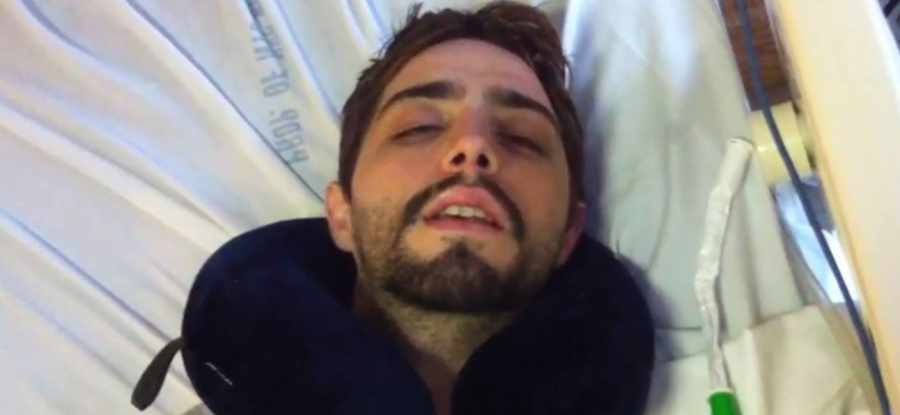
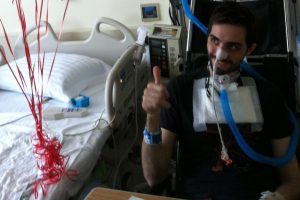
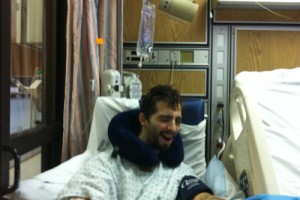
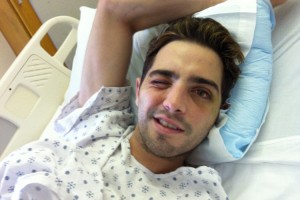
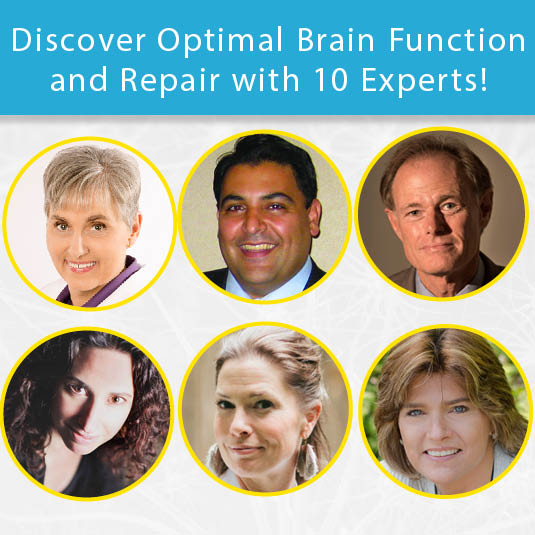
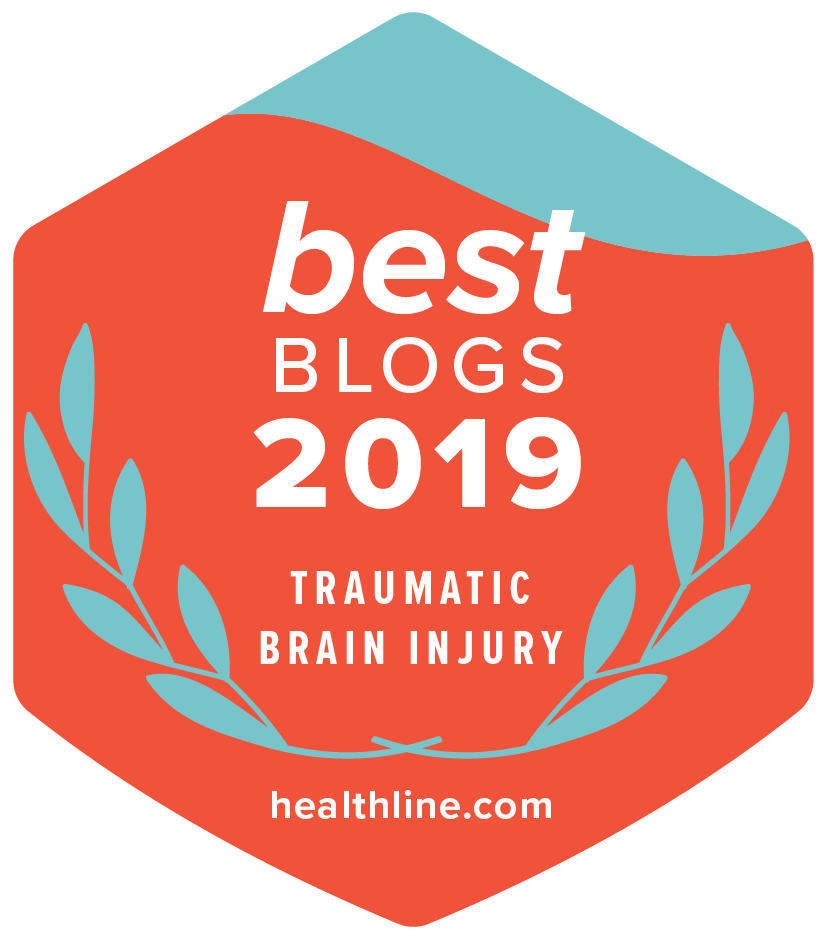
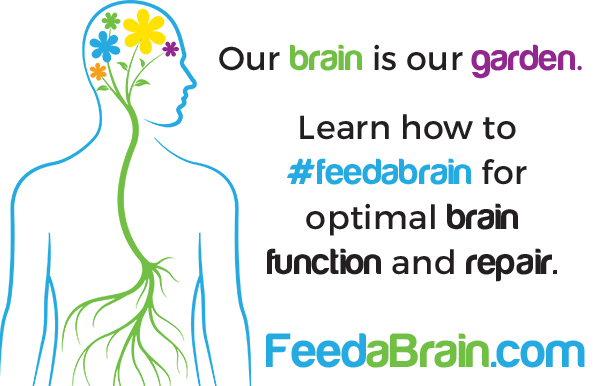
Leave a Reply
Your email is safe with us.